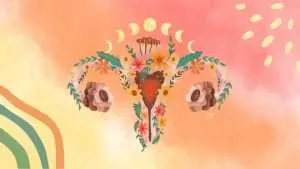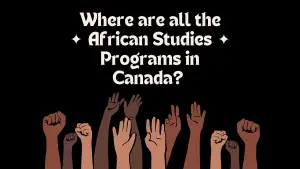In December 2019, in the city of Wuhan in China, the winter evolved and began spreading over its boundary. It spreads to other continents of the world within a short time frame. The spread of the winter was not as expected, as it took everyone aback like the explosion of nuclear bombs or even like the awakening of the dead from their graves.
Several socio-economic activities such as trading, traveling and tourisms have been grossly affected with this great anti-clockwise turn and spread of the winter. Like John Snow of Game of Thrones says, winter is coming. Well, the winter isn’t only coming, but it has arrived with its pandemonic and dreadful disasters.
What then is the “winter” I’m talking about?
The winter is coronavirus, also known as COVID-19. The coronavirus outbreak was first documented in Wuhan, Hubei Province, China in December 2019. Coronaviruses are a large family of zoonotic viruses that cause illness ranging from the common cold to severe respiratory diseases. Zoonotic means these viruses are able to be transmitted from animals to humans.
There are several coronaviruses known to be circulating in different animal populations that have not yet infected humans. COVID-19 is the most recent to make the jump to human infection. And the common signs of COVID-19 infection are similar to the common cold and include respiratory symptoms such as dry cough, fever, shortness of breath, and breathing difficulties. In more severe cases, infection can cause pneumonia, severe acute respiratory syndrome, kidney failure, and death (www.cnbc.com).
Ever since the spread of this virus across the globe, and Nigeria in particular, there has been several donations of billions of Naira in the name of “favor and solidarity” to curtail the widespread of this virus. In Nigeria, there have been donations from business tycoons, religious bodies and many more to help curtail the spread of the virus in this lockdown. I am of the view that all the billions of money given out by these capitalists and religious bodies will be collected back in another way since capitalism only knows profit maximization and surplus value.
Market Societies
We are more than three hundred years into the journey of market societies and people still believe things can be given out without cost. Everything has a cost. Favor and solidarity are feudal concepts. They don’t exist in this age, not anymore. There’s nothing like donation or aid, only value exchange.
If we are given money, surely we must give something, back, in return; anonymously. The cost of money is interest plus the initial amount, making it a debt—and as we learnt from ancient Greek drama of Dr. Faustus and Mephistopheles, the best way to control an entity is to make sure it is indebted to you (MA Iliasu).
Economic Anthropology
Etymologically, anthropology is derived from two Greek words anthropos and logos(logy), with anthropos meaning man and logos(logy) meaning the science or scientific study of man. Anthropology studies man holistically using either emic or etic approaches. It also has a multitude of different branches such as: physical/biological, social/cultural, linguistic, archaeological and the recent addition of applied anthropology.
Economic anthropology, the branch of interest here, deals with the total study of various economies of societies such as the primitive (traditional) and modern industrialized (Western) societies. The father of modern economics—Adams Smith—said, “it’s not from the benevolence of the butcher, brewer or the baker that we expect our dinner. Rather from the selfishness of their interests.”
In this western and modern capitalist world we find ourselves today, we should not expect to eat free bones in the houses of dogs or free carcass from the gatherings of vultures. Vampires do not give free blood, because they live to survive from the blood they suck.
The Economy
Well, when the term economic is mentioned, a host of images quickly come to our minds. These images includes currency (standardized money), demand and supply cost, foreign exchange, labour acquisition, stocks, gross domestic product (GDP) and gross national product (GNP). But all these concepts frequently applied in economics are not integral parts of all societies. While they are applied to modern societies, they have little to do with simple primitive societies. Economic anthropology has two school of thoughts; the substantivist and the formalist school of thoughts.
What am I trying to portray?
The substantive arguments are based on small primitive non-industrialized societies where goods and services are not driven by a sense of profit maximization or by the forces of demand and supply, but by a kind of reciprocity. Morality is attached to this kind of society and there are two types of reciprocity attached to this kind of society, namely, ordinary and generalized reciprocity.
Ordinary reciprocity—which is mostly found in primitive non-industrialized societies, the communal society where everybody is seen as one—is inspired by the moral or philosophical injunction or requirements that one should treat others as he or she would love to be treated. Whence, generalized reciprocity entails giving free services and is not accompanied with any expectations or payments. For example, one could give gift freely without expecting anything in return and we could see this in most primitive non-industrialized societies.
In the primitive societies where we have feelings of mechanical solidarity and people who are somehow related, we find such kinds of reciprocity. People give out goods and services mostly in the feudal societies, for favor and solidarity are feudal concepts. Karl Marx said also “the main aim of commodity in primitive society is to sell or barter and buy or get another commodity.”
Now, we need not be told that we’re in a capitalist era. Where we must have a reason to give and we are motivated by profits. Our daily relationships are capitalist-inclined. You give something expecting to get something in return. Some might argue that among those who donated and provided aid are religious leaders, so does that means they are also capitalist-inclined? Of course.
Looking at the kind of world we find ourselves today, I will say yes, to some extent. These capitals or services could be easily collected from the tithe in the churches as we saw previously in Nigeria. Amid the COVID-19 pandemic, some religious leaders were asking their members to pay their tithe online, and, some even created android applications specifically for collecting tithes.
Max Weber
Though it could not be necessary for these religious donors to collect their money back, it could also serve as advertisement or strategies to garner support from the government and control the general public. If one reads the book of a German Sociologist, Max Weber’s Protestant Ethics and the Spirit of Capitalism (1904–1905/1958), he could have understood that those who paved way for the rise of capitalism after the downfall of the Roman empire and feudalism were religious leaders, most especially Protestant (Calvinist) leaders.
The ethics of the Protestants compelled their followers to accumulate money, invest and reinvest more. By doing so, they might get salvation from the ‘lord,’ thereby preaching capitalism as it entails profit making and reinvestment.
Emile Durkheim
The Catholics, on the other hand, were the ones who geared the idea of feudalism and when the Protestants got tired of the Catholics, they protested against the excesses of the Catholic church. So, they are called the Protestant because they protested against the Catholics. It is the common reason why we see more suicide cases among Protestants than Catholic due to less integration among Protestants as explained by Emile Durkheim in his book Elementary forms of Religious Life (1912/1965) and the Theory of Suicide (1897/1951).
Karl Marx
In addition, in his book The Communist Manifesto Karl Marx asserted that “a spectre is haunting Europe—the spectre of communism. All the power of old Europe have entered into a holy alliance to exorcise this spectre: Pope, Czar, Metternich, and Guizot, French Radicals and French Police-species.” Marx understood that some religious leaders go as far as getting their groceries at the detriment of the poor people. He went further to illuminate society on the social evil behind the success of most religious leaders by warning them to “see before they leap.”
In the modern world, balanced reciprocity is mostly practiced. A balanced reciprocity is practiced in accordance with the formalist school of thought. Balanced reciprocity entails exchange of goods and services with the soul interest of getting something back in the future. This type of reciprocity is practiced in the modern industrialized world we live in today. As Marx said “[the] main aim of money in a capitalist society is to get commodity, sell and make more money.”
However, we should not forget that two-thirds of those who donated money for the fight against coronavirus pandemic in Nigeria were business men and women such as, Dangote, Jack Ma, Atiku, Abdussamadu, and United bank of Africa who are all capitalist-inclined.
What keeps capitalism growing or alive is “capital, attached with surplus value” or profit. Capital is any assets, financial or otherwise, that is itself a source of income. The capitalist must exploit if he really wants to survive or grow and “alienation” therefore sets in. In Marx’s Das Kapital (Volume 1-3) he said that “capital is dead labor, which, vampire-like, lives only by sucking living labor, and lives the more, the more labor it sucks.”
Conclusion
Conclusively, these people will surely collect back their capital from the masses and, maybe, with debts added to it and not necessarily from the government. One may ask, “in the cases of banks that donated money to the fight against this pandemic ravaging the country, why didn’t they just send it direct to bank accounts of Nigerians, since we all have bank verification numbers (BVNs)?” Of course they won’t! They are looking for favors from the government and that is the only way they can have that favor by showing patriotism with hidden capitalist motives.
Indeed something is stinking out there! These capitalists will definitely collect back these ‘aids’ via increase of prices of goods and services after this pandemic or devise another subtle method in “sucking living labour.”
I will end this piece with one last quote from Karl Marx:
Capital is money, capital is commodities. By virtue of it being value, it has acquired the occult ability to add value to itself. It brings forth living offspring, or, at the least, lays golden eggs. In bourgeois society capital is independent and has individuality, while the living person is dependent and has no individuality.
Karl Marx







